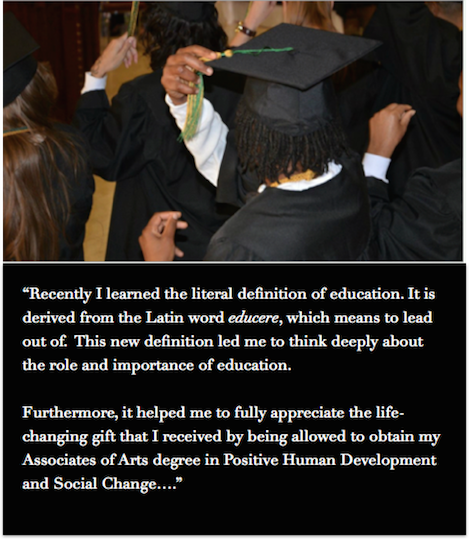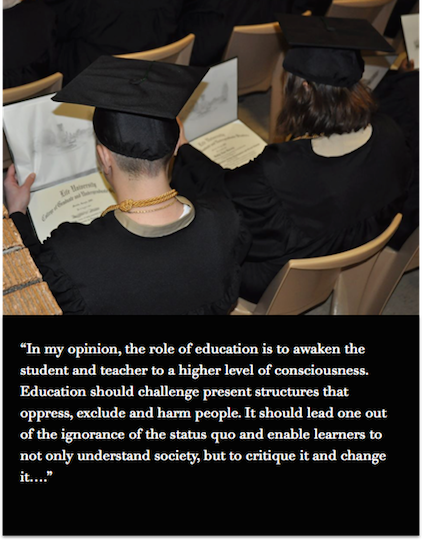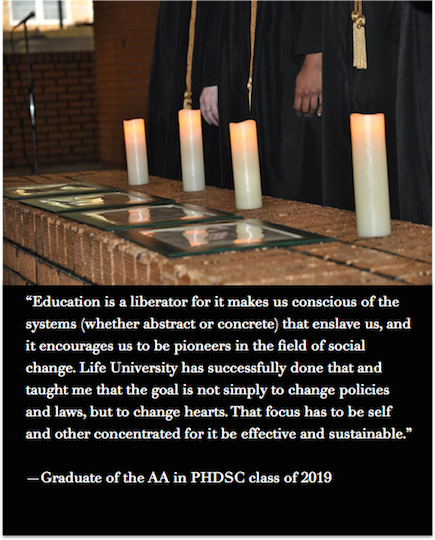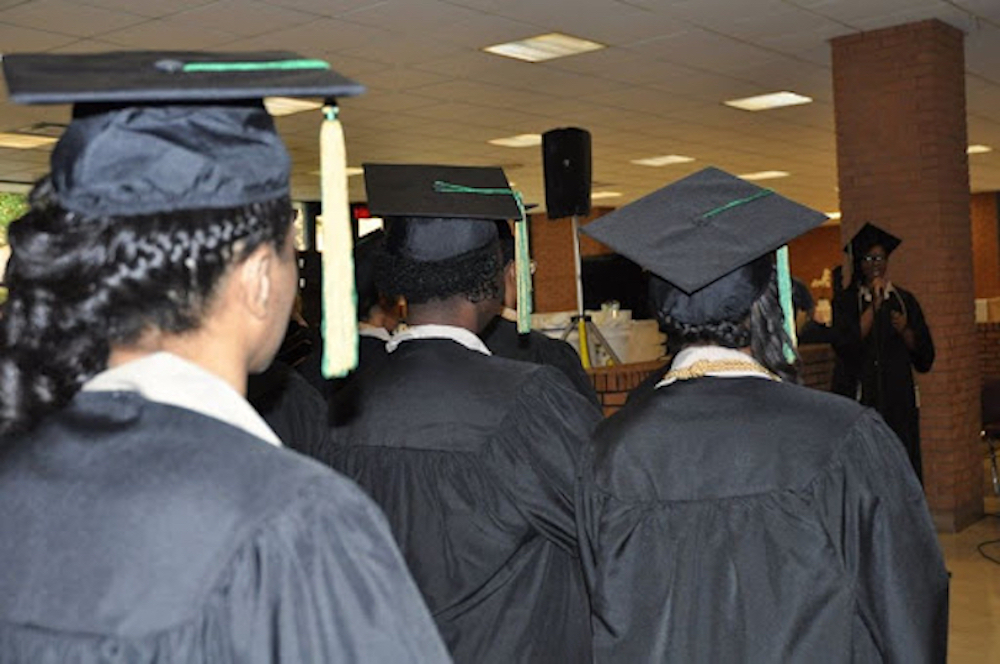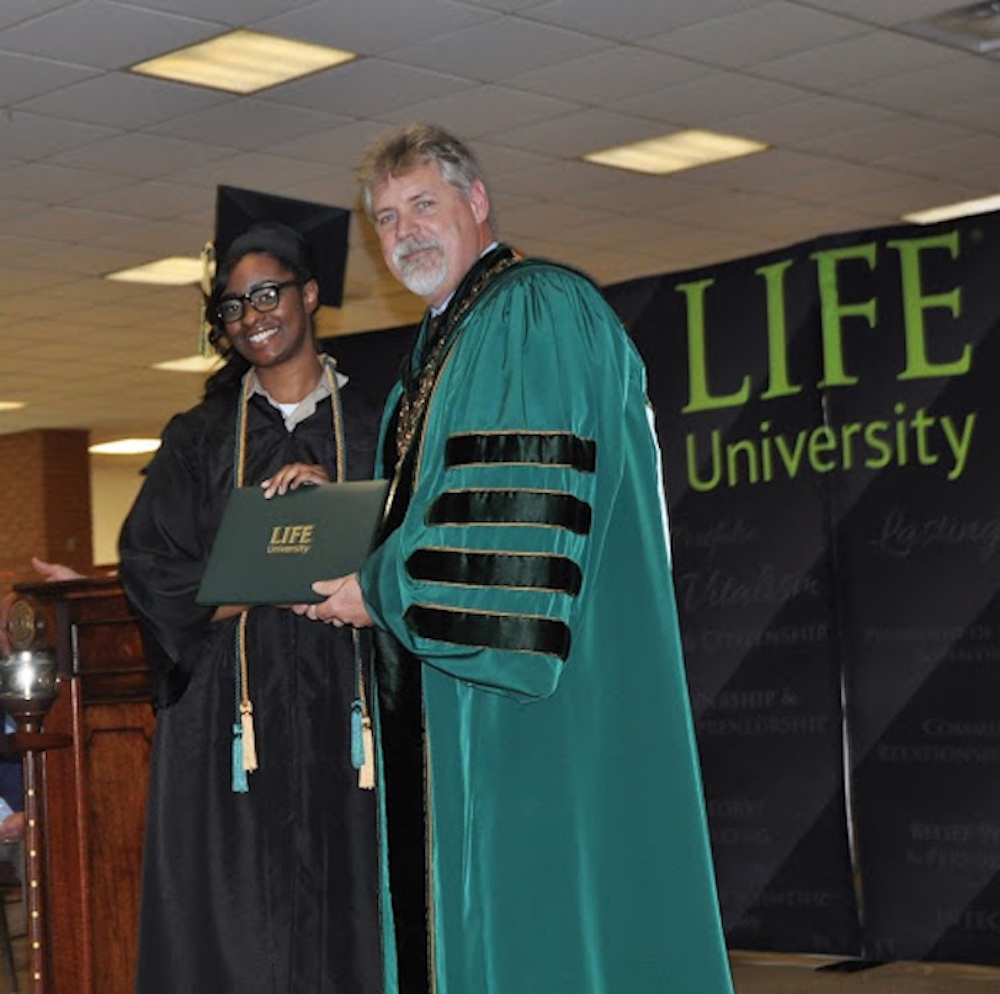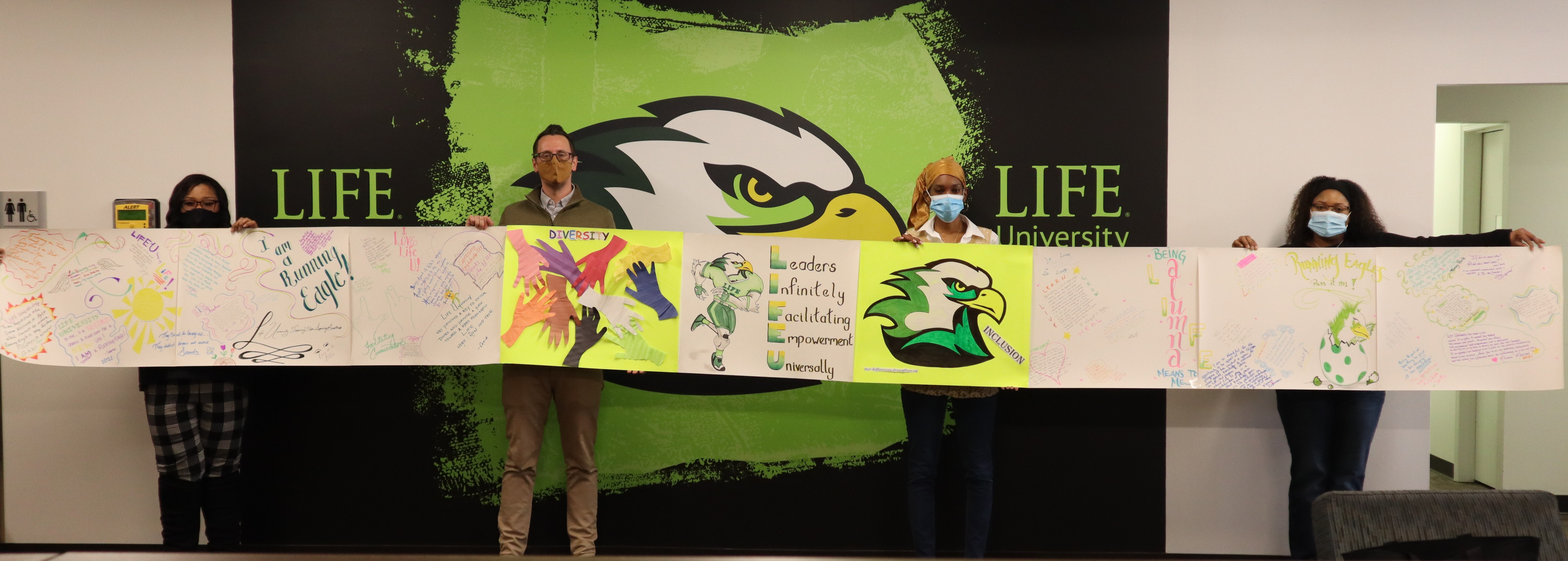The Chillon Project is an initiative of the Center for Compassion, Integrity, and Secular Ethics to provide higher education to people impacted by the prison system in Georgia. Life University offers two degree programs at Arrendale State Prison, a maximum-security facility for women in Alto, Georgia: an Associate of Arts in Positive Human Development and Social Change, and a Bachelor of Science in Psychology. Students in these programs who are released from prison continue to receive scholarships to complete degrees of their choice at the main campus of Life University or through distance education. Chillon also provides full scholarships for correctional staff to earn degrees at Life University.


